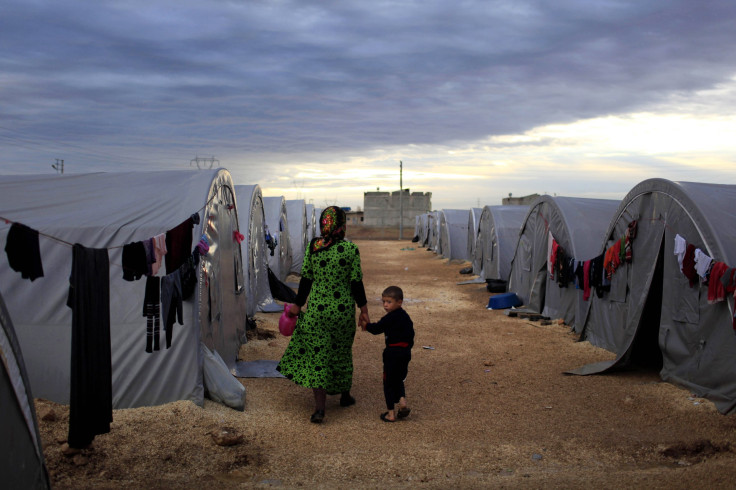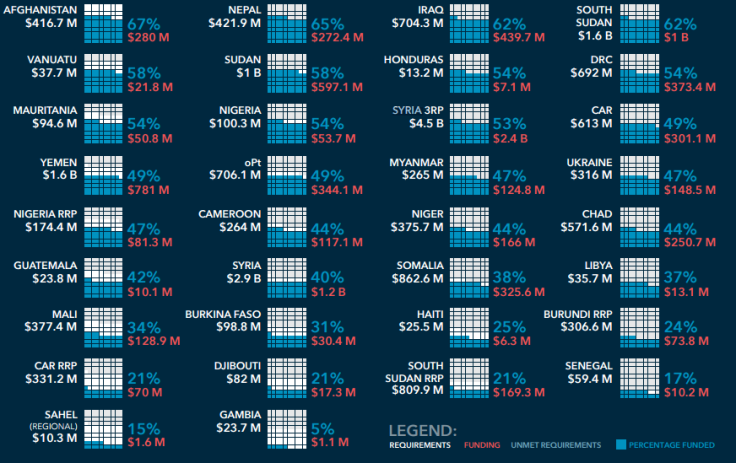UN Launches Its Largest Ever Humanitarian Appeal, Seeks $20B In Aid For 2016

The United Nations will need $20.1 billion to provide life-saving aid to over 87 million people across 37 countries next year, as “brutal and extended” conflicts continue to take their toll. Launching the largest humanitarian aid appeal in the organization’s history Monday, the U.N.’s Emergency Relief Coordinator Stephen O’Brien painted a bleak picture of the current state of affairs in the world.
“Suffering in the world has reached levels not seen in a generation. Conflicts and disasters have driven millions of children, women and men to the edge of survival,” O’Brien said, in a statement. “They desperately need our help.”
For 2015 -- a year that witnessed a rapid uptick in violence in Syria and Iraq and worsening food security in sub-Saharan African nations such as South Sudan -- the U.N. had launched an aid appeal of $19.9 billion. However, international donors, which include governments, provided just $9.7 billion, less than half the amount sought.

“It is clear that with the present level of resources, we are not able to provide even the very minimum in both core protection and life-saving assistance,” U.N. High Commissioner for Refugees António Guterres said Monday, as he launched the Global Humanitarian Overview 2016 in Geneva. “The international humanitarian system is all too often the only safety net that exists for people fleeing wars. It has to be funded on a scale that’s realistic and commensurate with today’s immense challenges.”
For instance, in Syria, which is reeling under a multipronged conflict that has affected 13.5 million people still living in the country and forced 4.7 million people to flee to neighboring nations, the U.N. needs $8 billion in emergency aid. Earlier this year, the U.N.’s World Food Program was forced to temporarily suspend part of its food aid for Syrian refugees after it failed to secure enough funding.
If the latest funding appeal is not met, the cash-strapped U.N. might once again be forced to make cutbacks.
“This money has to be funded from the world's aid budgets, and aid budgets are stagnant in this era, very tight fiscal constraints,” Stephen Howes, director of the Development Policy Centre in Australia, told ABC News. “I think Syria's a good example, because that is the biggest humanitarian crisis.”
© Copyright IBTimes 2024. All rights reserved.





















